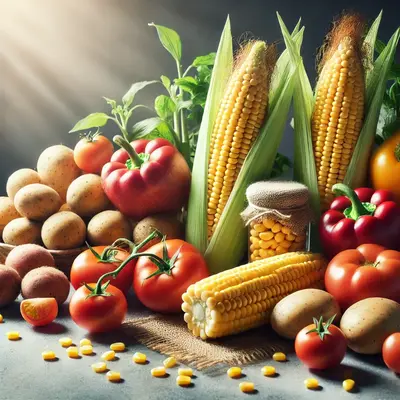Genetically Modified Organisms (GMOs) often get a mixed reception. On one hand, they’re hailed as technological wonders that help feed a growing global population. On the other, they’re painted as mysterious science experiments with unknown long-term effects. So what’s the truth? Should you be wary of that GMO-labeled food on your shelf, or is it no different than any other grocery item?
Understanding GMOs: What Are They Really?
Genetically modified foods are produced from organisms that have had their DNA altered in ways that do not occur naturally. This typically involves inserting specific genes from one species into another to achieve desired traits. Imagine a tomato that doesn’t rot as quickly or corn that can fend off pests without pesticides. That’s the power of GMOs.
One of the most common genetically modified crops is Bt corn. Bt stands for Bacillus thuringiensis, a bacterium that naturally produces a toxin deadly to specific insects. By inserting Bt genes into corn, scientists have created a crop that can defend itself against common pests, reducing the need for chemical pesticides.
The Benefits of Genetically Modified Foods
Proponents of GMOs often highlight several key benefits:
- Increased Yield: With a growing global population, ensuring a steady food supply is crucial. GMO crops can yield more food per acre than traditional crops, helping to meet this demand.
- Pest Resistance: Crops that are resistant to pests reduce the need for chemical insecticides. This is beneficial not just for the environment but also for farmworkers, who are exposed to fewer chemicals.
- Nutrient Enhancement: Some GMOs have been modified to provide more nutrients. Take Golden Rice, for example—it’s enriched with Vitamin A, aimed at reducing deficiencies in developing countries.
- Adaptation to Harsh Environments: Some genetically modified crops are designed to withstand extreme weather, such as drought or frost, allowing farmers in challenging climates to grow their own food.
Dr. Evelyn Harper, an agricultural scientist, explains, “Many of these modifications are driven by the needs of farmers and consumers. The ultimate goal is to create crops that are more efficient, nutritious, and sustainable.”
Concerns and Controversies
Of course, GMOs have their share of skeptics. Common concerns include health risks, environmental impacts, and corporate control over the food supply.
- Health Concerns: Critics argue that genetic modification might introduce allergens or toxins into food. However, Dr. Michael Benson, a food safety expert, assures that GMOs on the market have undergone extensive testing. “Every genetically modified food approved for consumption has gone through rigorous trials,” he says, “and there’s no evidence to suggest GMOs are harmful to human health.” Still, there remains a lingering fear among some consumers that long-term health impacts might not be fully understood.
- Environmental Issues: GMOs can also impact the environment. For instance, some herbicide-resistant crops are designed to tolerate specific chemicals, which can lead to an increase in herbicide use. Glyphosate, commonly used on GMO crops, has sparked debates about its safety and environmental impact.
- Cross-Pollination: Another worry is the unintended cross-pollination between GMO and non-GMO crops, potentially threatening biodiversity. Imagine a field of genetically modified maize cross-pollinating with a non-GMO neighbor’s field—the result is a mixture, which might not align with the non-GMO farmer’s intentions.
Laura Stevens, an organic farmer, shared her concerns: “Once GMOs are released, they can be hard to control. If my non-GMO crops are cross-pollinated, I lose the ability to offer a product I feel is natural.”
Labeling: Knowing What You’re Eating
One of the major points of contention is labeling. In many countries, GMO labeling is mandatory, allowing consumers to make informed choices. However, in the United States, the approach to GMO labeling has been a source of debate, with some arguing that labels might unnecessarily alarm consumers.
Dr. Harper believes transparency is key. “The more information available, the better,” she says. “GMO labeling gives people the right to choose. It’s not about fear, it’s about empowerment.”
The Bottom Line: Should You Worry?
So, should you be concerned about genetically modified foods? The answer is—it depends on your perspective. From a scientific standpoint, GMOs are safe to consume, and their benefits to food security and sustainability are compelling. Yet, concerns about environmental impact, corporate control, and long-term health effects persist.
For those wary of GMOs, choosing organic is the safest bet, as organic certification prohibits genetic modification. For others, embracing GMOs might mean supporting a technology that’s helping to address some of the world’s toughest agricultural challenges.
At the end of the day, it’s about personal choice. Whether you’re an advocate or a skeptic, being informed is the most powerful tool you have. Just as Dr. Benson emphasizes, “Knowledge dispels fear. Understanding the science behind genetically modified foods can help you make a choice that aligns with your values.”
So…
Genetically modified foods are a part of our modern food system, and like any technology, they come with both benefits and risks. Whether you decide to include them in your diet is up to you. One thing is certain: understanding what GMOs are, their potential benefits, and the concerns surrounding them can help you make informed decisions about the food you eat.
About the Author
Reyus Mammadli is the author of this health blog since 2008. With a background in medical and biotechnical devices, he has over 15 years of experience working with medical literature and expert guidelines from WHO, CDC, Mayo Clinic, and others. His goal is to present clear, accurate health information for everyday readers — not as a substitute for medical advice.







